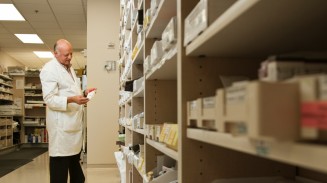U.S. chocolate demand may get an extra boost from an unlikely source this Halloween: the U.S. shale revolution.
With an abundance of crude oil due to the country's fracking boom pushing average U.S. retail gasoline prices to their lowest in four years, consumers have spare change to buy sweets at gas station stores, Hershey President and Chief Executive Officer John Bilbrey said on Wednesday.
"You could say that we benefit because people aren't spending as much at the pump and they're going inside," Bilbrey said in a conference call with investors to discuss quarterly earnings.
To be sure, consumers were still buying snacks on the road even when gas prices were much higher in recent years, and Hershey does not include fuel costs in its forecasting, Bilbrey said.
But it's an additional sweet spot for the maker of Hershey Kisses and Reese's Peanut Butter Cups after better-than-expected demand ahead of Halloween, the biggest U.S. chocolate selling holiday.
Annual chocolate candy sales add up to as much as $18 billion in the United States.
More than a quarter of those this year will be in forecourt retailers, including gas station shops like Shell, and convenience stores like 7-Eleven [SILC.UL], according to market research firm Euromonitor.
That's second only to mixed retailers, which include department stores like Macy's Inc.
Filling a tank up for less encourages consumers to spend more at convenience stores and boosts overall consumer sentiment, said Jeff Lenard, spokesman for the National Association of Convenience Stores (NACS).
Chocolate may benefit more than other products because it's considered a treat.
"Particularly when we're still dealing with a fragile economy, chocolate's considered one of those affordable luxuries," Lenard said.
NACS data show when customers buy gas, more than 20 percent also stop in the store to purchase snacks, the second-most commonly bought product after drinks.
The news is particularly welcome as analysts warn that retail price hikes caused by soaring dairy and cocoa prices could hurt demand. Cocoa futures hit 2-1/2 year highs at the end of September on fears the Ebola virus might spread to top-producers Ivory Coast and Ghana.
Bilbrey warned on Wednesday that consumers would continue to see higher prices on non-seasonal chocolates in the fourth quarter and 2015.
Copyright Thomson Reuters. All rights reserved.
Get the Most Popular Lawyerherald Stories in a Weekly Newsletter





